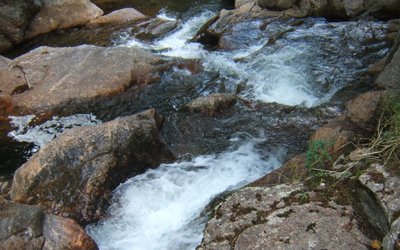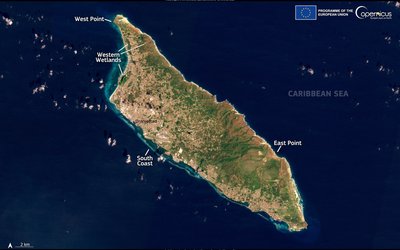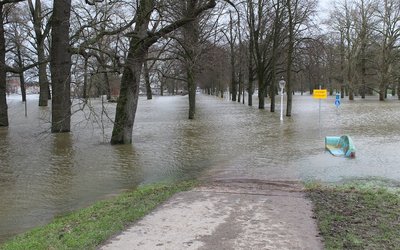
Potential (climate change) influences on the United Kingdom’s floods of winter 2013/14 have been assessed. Total winter rainfall in the Thames catchment in this winter was the highest on record. Similarly, sustained high flows were observed across other major rivers in southeast England and parts of Scotland, reflecting high rainfall amounts. Although there is some observational evidence of intensification of UK rainfall, there is little suggestion of emerging trends in precipitation-driven (that is, non-tidal) high-magnitude UK floods; less UK ice and snowmelt in a warming world may suppress flood risk. A lack of trends cannot, however, be taken to mean there is no underlying emerging climate change signal, given the low signal-to-noise ratio in flood records.
River-flow records show relatively little evidence for long-term increase in UK flood severity, although identification of trends can be confounded by dam construction, river engineering, major land-use change and abstractions. To minimize these confounding effects, networks of relatively undisturbed UK catchments with good-quality hydrometric records have been identified. These show some trends, notably increases in high-flow frequency and magnitude, particularly in the winter half-year, and for upland areas of the north and west. This is consistent with other studies finding increases in heavy rainfall for those seasons and regions.
For the Thames, there is no compelling statistical evidence of an increase in flood magnitude for the period 1883 to 2010. In relation to flood risk generally, sustained river management, for example increasing channel capacities and constructing more hydraulically efficient weirs, has certainly been beneficial; there has been a significant decline in annual maximum levels in the Thames since the 1880s.
Source: Huntingford et al., 2014. Nature Climate Change 4: 769-777.
Photo: S. Rae (www.flickr.com)








